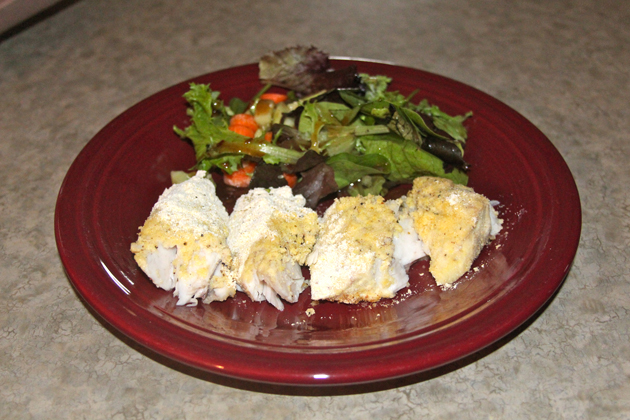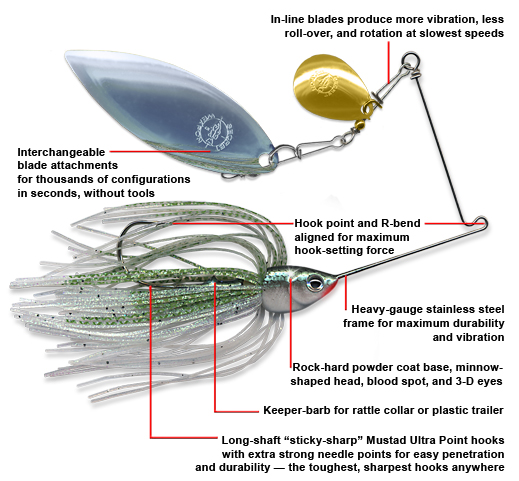
Health concerns cause a C&R devotee to reconsider keeping fish
Change in Heart
Words and Photos by Jeff Little
Last month, I turned 38. Last week I got the lab results of a wellness screen. If these health measures are not good, my healthcare insurance rates can be jacked up next year. My HDL cholesterol is too low. That’s the stuff you want to have. My LDL cholesterol, the bad stuff is too high. I run an average of 6.3 miles a week. I eat my veggies and put flaxseed meal on my raisin bran each morning. I have a degree in dietetics. But somehow my cholesterol is out of whack. I am a catch and release angler, or at least I used to be. My hope is that the essential fatty acids found in fish will tip the good cholesterol/bad cholesterol ratio back in my favor.
This change in heart came about slowly over the last several months, but the poor lab results solidified my resolve to eat some of the fish I catch. As a teenager, I would bring home channel catfish to eat, but my appetite for them waned. Also, my mother grew tired of raccoons visiting the catfish tree where I would nail their heads in place before skinning them. I suppose I was a bit sloppy with the discards.
Into adulthood, my appetite for fish was neutral, but a strong catch and release ethic developed, especially in regards to my beloved smallmouth bass. Some of them I caught more than once a year, identifiable by certain unmistakable marks. I knew them when they were 16 inches, and years later when they were 21 inches. They were closer to pets than something that I would ever consider eating.
Then the northern snakehead came on the scene, and I considered it a duty to remove the invasive species from the tidal Potomac River, one meal at a time. That led to an occasional yellow perch or crappie. I developed a procedure for carrying and icing down fish in an insulated fish bag that fits perfectly in the rear well of my kayak.
Now when I go out on the Chesapeake Bay in search of Striped Bass, it’s premeditated catch and keep. The tipping point came earlier this summer. I had been on the water during a rainstorm that included a flash flood warning for Kent Island, Maryland, and a small craft advisory. For five and a half hours, I worked nasty raw bleeding blisters into my palms paddling against heavy surf. As soon as I stopped paddling, I was blown off the deep structure I was trying to jig. The only two fish I caught that day came on consecutive casts. One was 27.5 inches and the other was 31.5 inches. I kept both, but there was a moment in the middle of the monsoon when I considered releasing the first one, the larger of the two.
I looked down at it in my lap. I noticed it’s purple sheen glazing over lanes of black stripes racing down a long olive white body. I didn’t see fillets. I saw it’s one upturned eye looking, moving around. I envisioned it swimming back down to the pile of rocks I had just yanked it off of. Then I said this out loud to myself, “Nope. You’ve worked too hard for it today!” I ate some of it that evening, and had plenty of fillets in the freezer to experiment with. Here’s a favorite recipe I came up with over the course of the late summer.

Lemon Pepper Rockfish
Lemon Pepper Shake and Bake Rockfish
4 skinned rockfish fillets, about 6 ounces each
1 gallon food storage bag
2 cups corn meal
8 tablespoons lemon pepper seasoning (most people would want it less than this, but I like it strong)
2 tablespoons dill weed
2 large eggs
6 ounces olive oil
4 tablespoons lemon juice
Mix half the olive oil, both eggs and the lemon juice in a bowl. Pour the other half of the olive oil into a glass Pyrex baking dish. Combine the corn meal and lemon pepper in the food storage bag, close and shake. Dip each fillet into the egg/oil mixture then drop into the bag, close and shake. Lay each fillet in the baking dish, spread remaining cornmeal mixture over fillets, and bake at 400 degrees for 18 to 24 minutes, depending on the thickness of the fillets.

How To Customize A Golf Bag With Golfing Gifts

Basketball hoops: the best fitness equipment for your family

Copyright © www.mycheapnfljerseys.com Outdoor sports All Rights Reserved